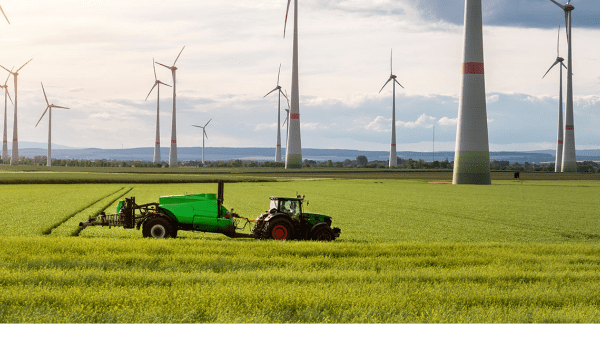It seems that sustainability is here to stay.
On November 3, a group including some of the world’s largest and most influential agribusiness companies launched an action plan to promote sustainable farming practices around the world.
A report by the Agribusiness Task Force of the Sustainable Markets Initiative (SMI) contends that while regenerative agriculture is growing worldwide, “the rate must triple to deliver against the planet’s need to limit climate change to 1.5 degrees.”

The task force chief, Grant Reid, outgoing CEO of the Mars candy company, said that the rate of progress in this area was “far too slow.”
The report, written by sustainability analysts Systemiq, contends that regenerative agriculture “needs to make up at least 40% of global cropland by 2030, up from around 15% today.”
The report outlined five areas for action:
“1. Agree [on] common metrics for environmental outcomes
“2. Build farmers’ income from environmental outcomes such as carbon reduction and removal
“3. Create mechanisms to share the cost of transition with farmers
“4. Ensure government policy enables and rewards farmers for transition
“5. Develop new sourcing models to spread the cost of transition”
The SMI was launched at the 2020 meeting of the World Economic Forum in Davos, Switzerland, by King Charles III of the U.K., then Prince of Wales.
Members include Bayer, HowGood, Indigo Agriculture, Mars, McCain Foods, McDonald’s, Mondelez, Olam, PepsiCo, Sustainable Food Trust, Waitrose & Partners, and Yara International.
The initiative is one of many similar measures being sponsored by major corporations. This trend started with a groundbreaking 2019 announcement by the powerful Business Roundtable declaring that a company has a fundamental responsibility not only to its shareholders (as previously held) but to all its stakeholders—essentially anyone affected by its business.
These moves have provoked a variety of reactions, including widespread claims of “greenwashing”—mouthing environmental slogans while doing little or nothing to implement them.
Rhetoric or not, sustainable and regenerative agriculture will continue to feature prominently in the stated objectives of many of the world’s biggest businesses.
For an individual operator, these practices, although worth pursuing in their own right, form merely one of many variables that the business needs to take into account. Not everyone in the produce industry—or in the food industry as a whole—will embrace this approach as fully and wholeheartedly as some may wish.
But a lesson can be learned from the integration of organic farming into the mainstream, which has proceeded without stop over the last three decades. This trend began not only with the genuine environmental concerns of some growers, but with the fact that many consumers wanted organic produce and were willing to pay a premium for it.
In short, organic farming succeeded partly because it provided a marketing advantage.
Similarly, growers who can integrate regenerative practices and policies are likely to have another selling point—now with larger purchasers.
That is, if you are pitching lettuce to McDonald’s (a member of SMI), it will probably help you to be able to say honestly that it is sustainably grown.
At this point, it is hard to contend that the drive for sustainability is merely a passing fad.



